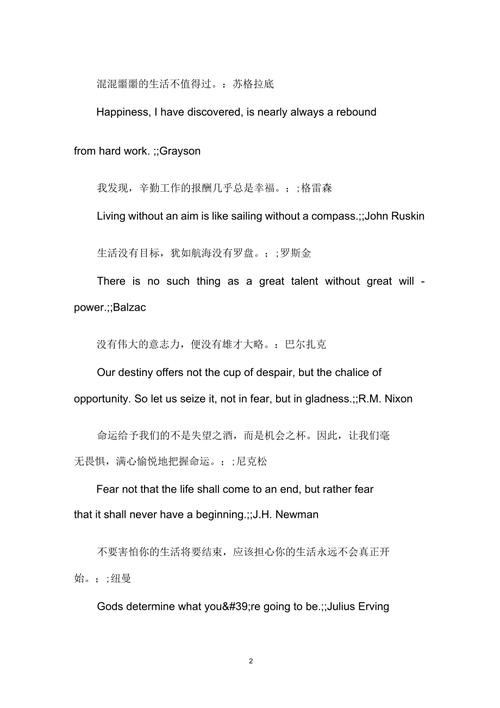Title: Translating English Proverbs: Culturally Appropriate Approaches

Translating English proverbs into other languages can be a nuanced task, especially when considering cultural context and linguistic differences. It requires a deep understanding of both languages involved and the ability to convey the intended meaning effectively. In this guide, we'll explore some strategies for translating English proverbs into Chinese, taking into account cultural sensitivities and linguistic considerations.
Before attempting to translate an English proverb into Chinese, it's essential to understand the cultural context behind the proverb. Proverbs often reflect the values, beliefs, and cultural norms of a society. Therefore, translators must consider how the proverb is perceived within Englishspeaking cultures and how its underlying message can be conveyed in Chinese culture.
Translating proverbs involves not only conveying the meaning but also maintaining the linguistic nuances and rhetorical devices present in the original language. When translating English proverbs into Chinese, translators must consider differences in syntax, grammar, and idiomatic expressions.
1. Literal Translation: In some cases, a direct translation of the English proverb into Chinese may effectively convey the intended meaning. However, this approach may not always capture the cultural nuances or idiomatic expressions present in the original proverb.
2. Adaptation: Translators may choose to adapt the English proverb to better resonate with Chinese culture and language. This may involve replacing culturallyspecific references with equivalents that are more familiar to Chinese speakers.
3. Explanation: Some English proverbs may have no direct equivalent in Chinese. In such cases, translators may opt to provide an explanation or a similar Chinese proverb that conveys a similar meaning.
1. English Proverb: "Actions speak louder than words."
Chinese Translation: 行动胜于言辞 (Xíngdòng shèng yú yáncí)
In this translation, the literal meaning of the English proverb is preserved in Chinese, effectively conveying the message that actions are more impactful than mere words.
2. English Proverb: "A penny saved is a penny earned."
Chinese Translation: 省一分等于挣一分 (Shěng yī fēn děngyú zhèng yī fēn)
This translation adapts the English proverb to a Chinese context, replacing "penny" with "一分 (yī fēn)," which is a smaller denomination in Chinese currency. The underlying message of frugality and saving money remains intact.
3. English Proverb: "When in Rome, do as the Romans do."
Chinese Translation: 入乡随俗 (Rù xiāng suí sú)
In this translation, a similar Chinese proverb is used to convey the idea of adapting to local customs and behaviors, despite the differences in wording.
Translating English proverbs into Chinese requires careful consideration of both cultural context and linguistic nuances. By understanding the underlying message of the proverb and employing appropriate translation strategies, translators can effectively convey its meaning to Chinesespeaking audiences while maintaining cultural relevance.











